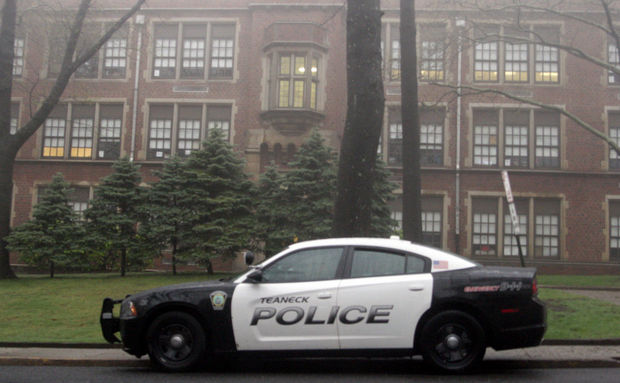Article by Daniel A. Levy, Esq.
On May 1, 2014, over 60 students at Teaneck High School were arrested following what was allegedly a high school senior prank. Some were over 18 and charged as adults, some were still minors. During the days and weeks that followed, there were numerous conflicting reports about what had actually occurred that evening. Last night, at Teaneck’s counsel meeting, a resolution was introduced, essentially asking the courts and prosecutor for leniency and/or dismissal of the charges. Teaneck Mayor Mohammed Hameeduddin stated that the mistakes of these youths should not follow them for the rest of their lives. I therefore wanted to take the opportunity to briefly discuss how New Jersey law treats non-violent, first-time offenses using diversionary programs.
Related: What is a ‘civil reservation’?, Criminal Law, Crimes in Municipal Court.
2C:36A-1. Conditional discharge for certain first offenses; expunging of records.
When charges are brought against an adult, they will have the case heard in the county Superior Court if the case is an indictable offense (i.e. a felony). For minor violations, they may only be charged with disorderly persons offenses, which are adjudicated in municipal court. Indictable charges are evaluated by one of the county prosecutors, and they have the option to downgrade minor felony charges to disorderly persons offenses and send the case to municipal court.
If a defendant is in municipal court, they will, under certain circumstances, be allowed to enter a diversionary program. The statute allows first time offenders who are charged with certain disorderly persons offenses to enter what is called the “conditional discharge” program. It is only available to people who have never been convicted of any offenses anywhere, and who have never entered any other type of conditional discharge program, PTI, or other diversionary programs. In addition, conditional dismissal will not be available if the offense for which the person is charged involved: organized criminal or gang activity; a continuing criminal business or enterprise; a breach of the public trust by a public officer or employee; domestic violence; an offense against an elderly, disabled or minor person; an offense involving driving or operating a motor vehicle while under the influence of alcohol, intoxicating liquor, narcotic, hallucinogenic or habit-producing drug; animal cruelty laws; or any disorderly persons offense or petty disorderly persons offense under chapter 35 or 36 of the Criminal Code (drugs and drug paraphernalia). However, a person who is charged with a disorderly persons or petty disorderly persons offense involving drugs or drug paraphernalia may apply for a conditional discharge.
The conditional discharge program is similar to probation, but usually has fewer obligations. If a person is admitted into the conditional discharge program, they must report to a probation officer. The term usually lasts 12 months, but could last for up to 36 months. There are modest fines/penalties that the person must pay.
The advantage of this program is that it essentially gives the defendant a fresh start. If they complete it successfully, the criminal charges will all be dismissed and the records will be expunged. This one mistake will not be something that will follow the person around for the rest of their lives. This is especially true since New Jersey law states that if a person’s record has been expunged, they are legally permitted to answer “no” if ever asked if they have been arrested or criminally charged in the past (although there are a few exceptions).
Pre-Trial Intervention and Cases in Superior Court
If a person is charged with an indictable offense, and the case stays in Superior Court, then they still will have the opportunity to apply for a diversionary program. Pre-Trial Intervention (“PTI”) has long been available to many people charged with indictable felonies. PTI is a similar type of program for first time offenders where the criminal charges are dismissed upon completion of the program. The PTI program is also very similar to the conditional discharge program in that it requires reporting to probation, modest fees, etc. Successfully completing the program will also result in the criminal charges being dismissed and all records of the charges and arrest may also be expunged. Again, it avoids a relatively minor, first-time mistake following a person for the rest of their lives.
Juvenile Charges in the Family Court
Generally, minors charged with offenses that would be criminal if committed by an adult are referred to the Family Court for further handling. Unlike courts for adults, the primary purpose of the Family Court is to rehabilitate the juvenile, rather than punish and deter others from committing the same offense. Charges in family court are routinely handled by way of community service programs, supervisory programs, probationary programs, etc. Minors charged with non-violent offenses are seldom incarcerated and they are not fined. They are also not “convicted” of a crime – they are adjudged as “delinquent”. Juvenile records are not generally accessible to anyone other than law enforcement and those charges would similarly not follow the person for the rest of their lives.



